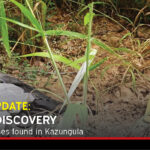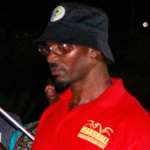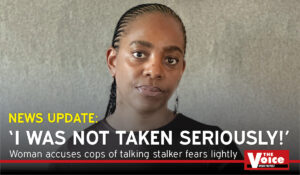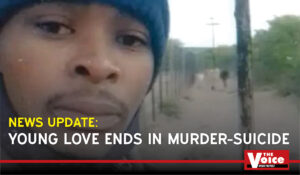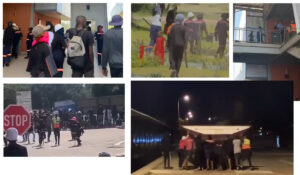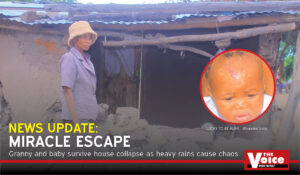Crocodile attack survivors still waiting for help
It is a partly cloudy Tuesday afternoon in Maun, but the baking sun beats through the wispy white at a relentless 38 Degrees Celsius.
To escape the heat, 57-year-old Nkoketsang Monnawatsheko sits in the shade of a big Mophane tree in front of her unfinished house in Disana ward.
Her youngest three grandchildren, a boy and two girls, take turns playing on her lap, jumping around without a care in the world until she calls them to silence so we can begin our interview.
This is the woman whose left arm was amputated in 2020 after she and her only daughter, Cicilia Monnawatsheko, were attacked by a crocodile in Thamalakane River while harvesting tswii (water lilies).
Monnawatsheko made a living by selling this natural resource, a favourite delicacy in North West and Okavango regions, especially when mixed with beef.
However, that fateful morning on 29th November, a crocodile crippled her source of income as well as her body, when it suddenly surfaced from under the water and caught her daughter by the right hand.
Monnawatsheko bravely rushed to rescue her only child, stabbing the reptile in the head with her harvesting knife.
The animal fought back, turned on her and crushed her left arm with its razor sharp teeth as it pulled her deeper into the water.
Hearing their desperate screams in the nick of time, a boy passing nearby hurried to help, throwing stones at the croc, which eventually released its grip on Monnawatsheko and slunk back to the depths of the river.
Although they lived to tell the tale, the two women were left with permanent disability; the mother losing her left arm while her daughter’s right hand was cut off.
News of their attack and bravery compelled Good Samaritans to extend a helping hand, with Okavango Human Wildlife Conflict Foundation (OHWCF) organising a fundraising dinner last May and Simmon Phuthego’s Foundation raising funds through the Coexistence charity bush walk.
Despite this, Monnawatsheko says she has very little to show for the fundraisers, except for her house and tuckshop being measured ‘at least four times’ by different charitable organisations.

“From there they never return or give us feedback on the progress. We are wondering whether the fundraising really is meant to assist us, or to mock us or they are using our names to profit themselves?” challenges the old lady, growing increasingly agitated as she talks.
“At that fundraising by OHWCF we only benefitted from sleeping in the hotel, that was all! Yes, somebody contacted them and bought a washing machine for us, but that was long after the fundraiser,” the granny grumbles.
Sitting next to her mother, Cicilia nods in agreement, noting that despite repeated promises from charities to help stock their tuckshop, nothing has been done.
The younger woman is, however, quick to express their gratitude for the help they have received.
“It is not that we are ungrateful. There are great things that have been done for us, like Mma Bethia [Councillor] connected electricity to our house, our church built us a toilet and we have a washing machine so it is easier for us to do laundry,” says Cicilia, subconsciously rubbing her stump.
Contacted for comment, Phuthego explained the inaugural walk, held this past December, did not raise as much as expected, only enough to run logistics.
“Yes, we have promised to buy them artificial limbs. That will require at least P300, 000 and that is not any small monies. So we are still working on it and that is why this coming July we are having another bush walk; we believe that one will be successful as the awareness has been made through the inaugural walk,” he said.
Phuthego further told The Voice the house measurements were taken to quantify the needed raw materials, adding they will definitely deliver on their promise.
Meanwhile, OHWCF’s founding Director, Kenosi Kamina said it is simply not true that they have not assisted the family.
“We are still a very new organisation and that fundraiser was our very first. We have no resources and we paid for the gala dinner as an awareness campaign. But even after that we did buy groceries for the family, registered them for Life Insurance, which is being paid for by Chobe 4X4, and we held a golf charity tournament in Kasane where one businessman, Laxon Likokoto pledged to assist. We asked him to buy two washing machines, one for Monnawatsheko and another for a survivor who was attacked by an elephant.”
Similarly, Kamina said they too took measurements for Monnawatsheko’s house and are in the process of buying materials and raising funds for the renovation.
“Our charity deals with victims of human-wildlife conflicts and there are many survivors that we are yet to assist. The restoration compensation we are doing is not monetary but rather helping these survivors to deal and live with their conditions and permanent disabilities and these include psycho-social support among other charity works,” stated Kamina.






